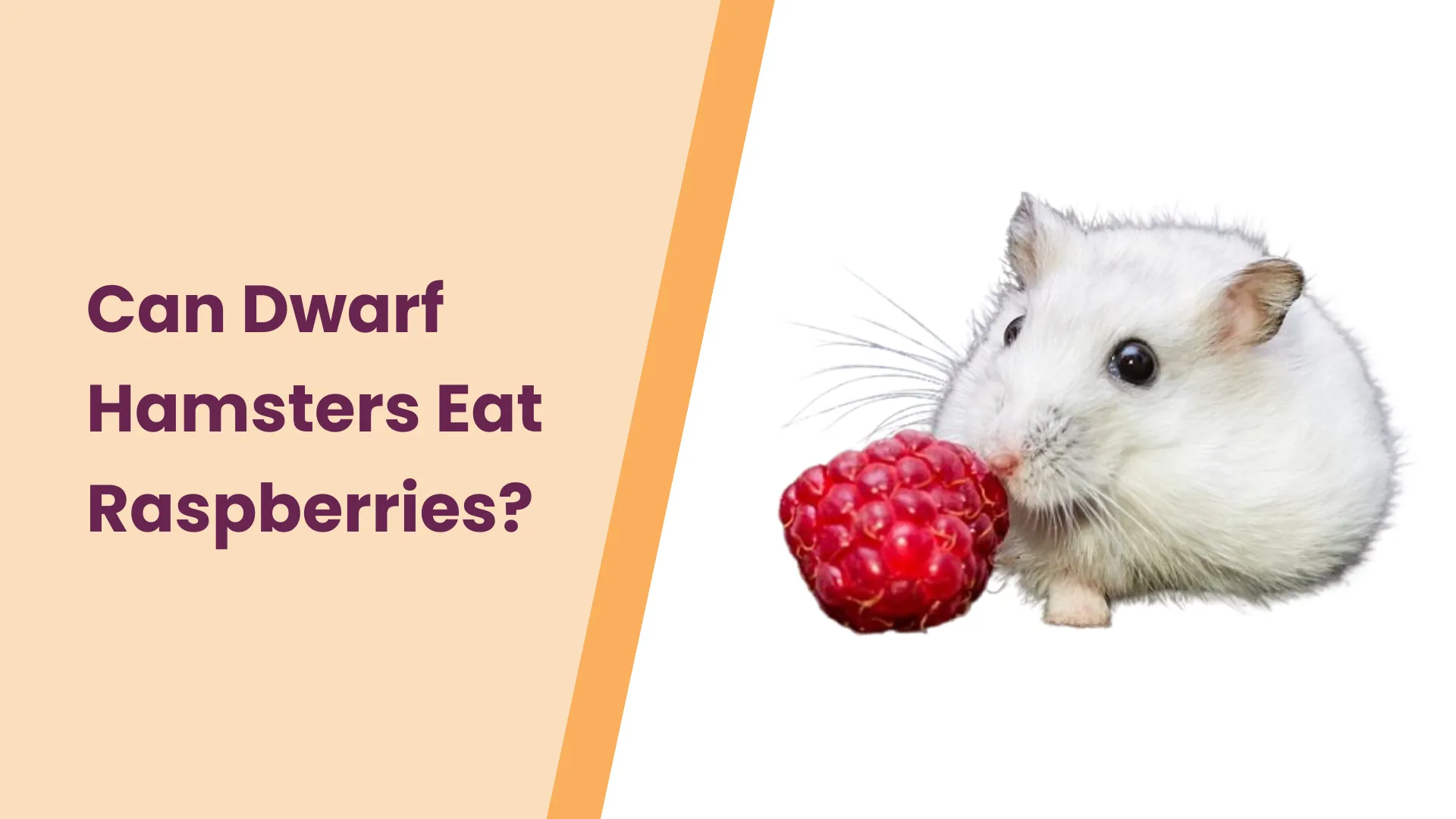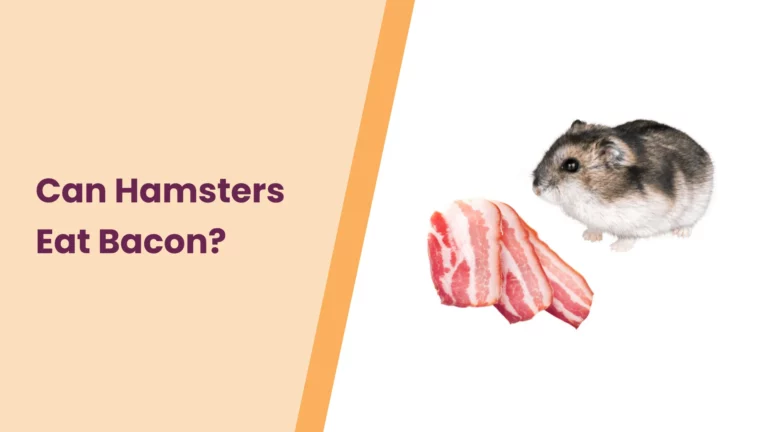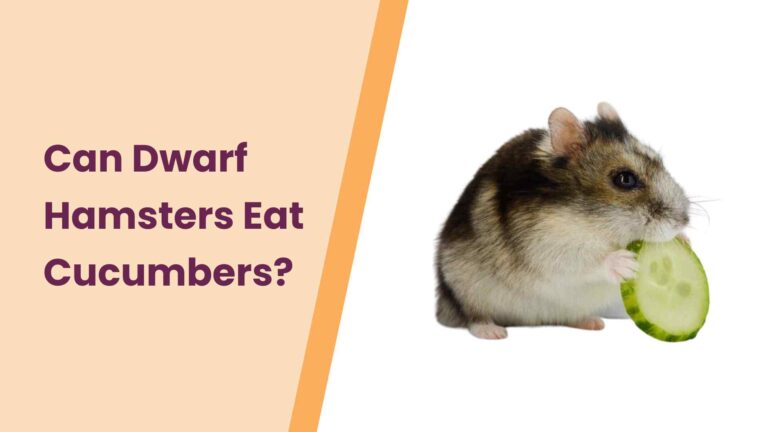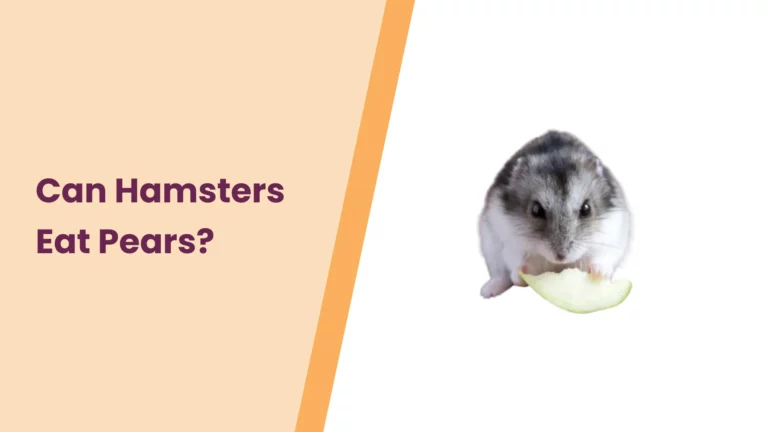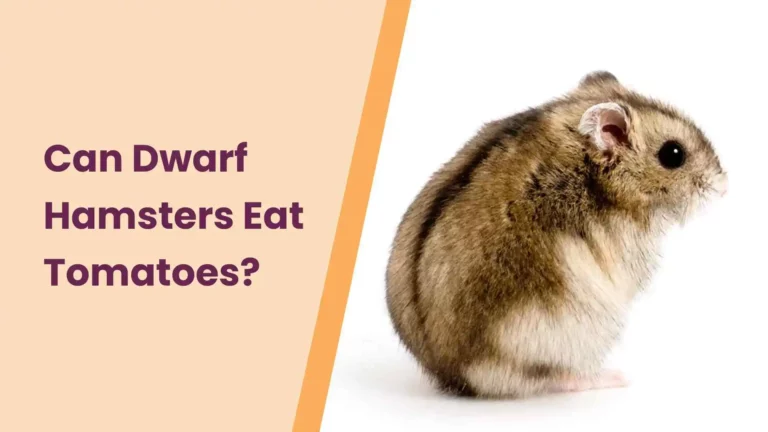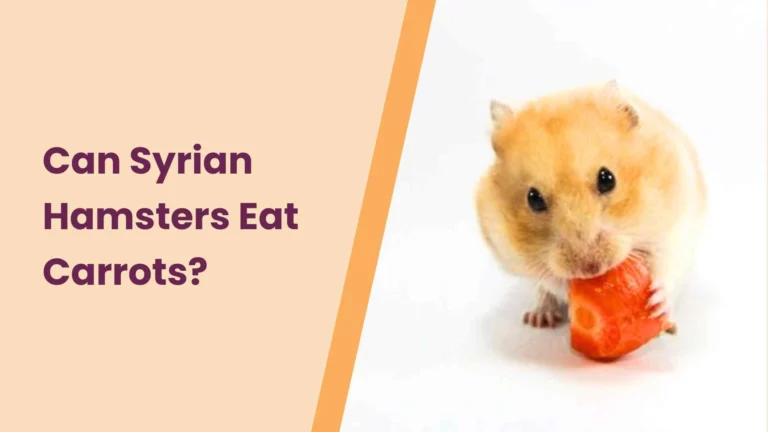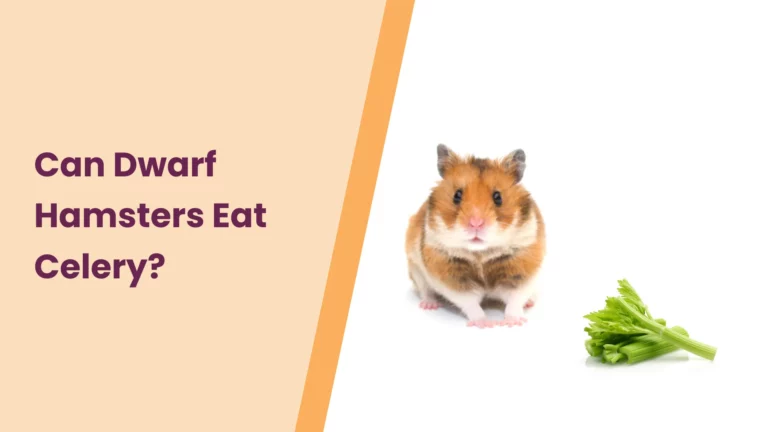Can Dwarf Hamsters Eat Raspberries? – A Complete Guide
As a devoted hamster parent, you want the very best for your pint-sized companion. You’ve already provided a cozy home, a wheel for exercise, and endless love, but now you’re curious about expanding their culinary horizons. Raspberries, with their vibrant color and sweet-tart flavor, have undoubtedly caught your attention.
Can these delightful berries find a place in your Dwarf Hamster’s diet, or should they be left off the menu? In this comprehensive guide, we’ll explore the delectable world of raspberries and their suitability for your tiny friend’s nutrition.
Let’s embark on this fruity adventure to discover if raspberries can become a cherished treat for your furry companion, all while ensuring their well-being remains the top priority. Read on to uncover the secrets of safely introducing raspberries into your Dwarf Hamster’s diet.
Are Raspberries Safe for Dwarf Hamsters?
Raspberries, with their alluring color and sweet-tart taste, are a temptation for many hamster owners. But before you introduce these delectable berries into your furry friend’s diet, it’s crucial to ask, “Are raspberries safe for Dwarf Hamsters?” The answer, in essence, is yes, but with a few essential caveats. Raspberries boast a medley of nutrients like vitamins C and K, dietary fiber, and a range of antioxidants.
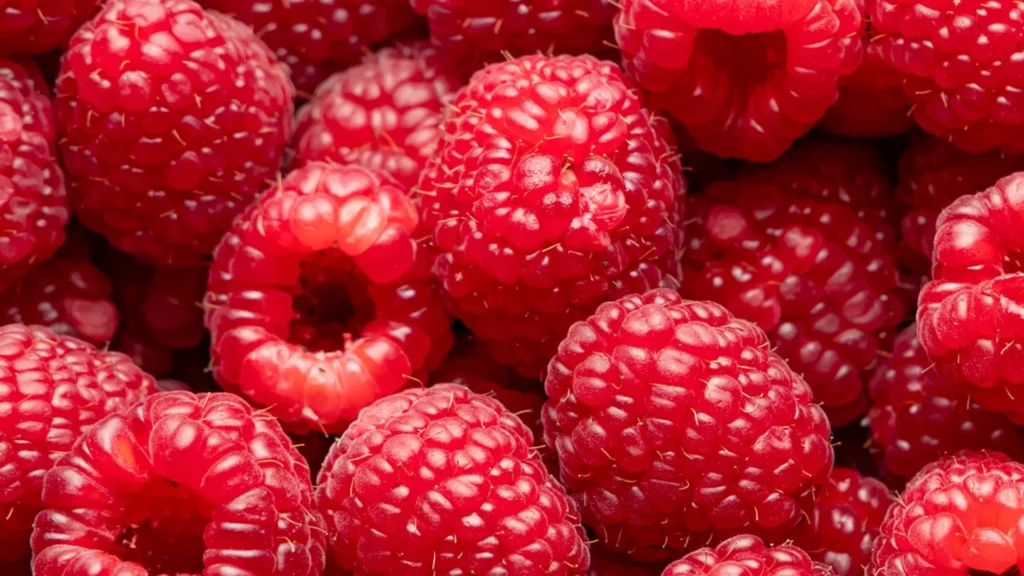
These elements might initially make raspberries seem like a fantastic addition to your hamster’s diet. However, they also contain natural sugars that, if consumed in excess, can lead to unwanted health complications. The key to offering raspberries to your Dwarf Hamster safely lies in moderation. While the vitamins and antioxidants in raspberries can offer potential health benefits, overindulgence in these sweet fruits can cause digestive distress and lead to weight gain. In the world of Dwarf Hamster nutrition, balance is the name of the game.
But that’s not the whole story. We’ll delve deeper into the benefits and risks of feeding raspberries to your tiny companion, ensuring you have all the knowledge needed to make the right dietary choices for your beloved pet. So, let’s continue our exploration and learn how to strike the perfect balance when it comes to raspberry treats for your Dwarf Hamster.
Benefits of Offering Raspberries to Dwarf Hamsters
While it’s essential to approach raspberry treats for your Dwarf Hamster with caution, these little berries do come with some enticing benefits. In this section, we’ll explore the potential advantages of adding raspberries to your hamster’s diet.
Vitamins and Antioxidants: Raspberries are packed with vitamins C and K, which can support your hamster’s overall health. These vitamins play a crucial role in bolstering the immune system and maintaining healthy bones and teeth.
Diverse Nutrition: Variability in your pet’s diet is essential for their well-being. Raspberries provide a new flavor and texture experience, adding variety to their daily meals and potentially preventing dietary monotony.
Mental Stimulation: Offering raspberries as an occasional treat can also stimulate your hamster mentally. They’ll need to figure out how to handle this new, unfamiliar food, providing a bit of enrichment in their lives.
Bonding: Sharing a raspberry treat with your hamster can be an excellent way to bond with your pet. It’s a moment of interaction that both you and your furry friend can enjoy.
However, it’s important to remember that these benefits are best enjoyed in moderation. In the next section, we’ll delve into the risks and considerations associated with raspberries, ensuring you’re fully informed about the potential drawbacks of overindulging in this tasty treat. So, let’s proceed to discover the other side of the raspberry story.
Risks and Considerations
As with any food introduced to your Dwarf Hamster’s diet, it’s crucial to be aware of the potential risks and considerations when it comes to raspberries. While these berries offer numerous benefits, we must also address the flip side of the raspberry coin.
Choking Hazard: Raspberries have small seeds that can pose a choking risk for Dwarf Hamsters. These seeds are not only small but also hard, making them a potential hazard if not properly managed. To mitigate this risk, it’s advisable to cut raspberries into smaller, manageable pieces, removing seeds when possible.
Digestive Upset: The high sugar content in raspberries can lead to digestive issues if your hamster consumes them excessively. Overindulgence in sugary treats may result in diarrhea or stomach discomfort. This highlights the importance of moderation when offering raspberries.
Hydration Concerns: Raspberries can be quite juicy, which might lead to increased thirst in your hamster. While hydration is essential, excessive water intake can also be problematic. Ensure fresh water is always available, and monitor your hamster’s water consumption if you’ve recently introduced raspberries.
Allergies: Just like humans, hamsters can have individual sensitivities or allergies. Always observe your pet for any adverse reactions when introducing new foods into their diet.
By being aware of these risks and considerations, you can provide raspberries to your Dwarf Hamster safely and responsibly. The key is to strike a balance, ensuring your furry friend enjoys the occasional raspberry treat without overindulging. In the next section, we’ll explore how to introduce raspberries to your hamster’s diet safely, making it a positive and enriching experience for both of you. So, let’s continue on our raspberry journey with caution and care.
How to Introduce Raspberries Safely
Introducing raspberries to your Dwarf Hamster’s diet can be a delightful experience when done correctly. Here, we’ll outline the step-by-step process for safely offering these tasty treats, ensuring your furry friend’s well-being remains the top priority.
Start Slowly: Begin by offering a tiny portion of raspberry. This could be a single small piece or a small slice, depending on your hamster’s size. Observe their reaction to this new treat.
Monitor for Allergic Reactions: Keep a close eye on your hamster for any signs of allergic reactions. These may include itchiness, swelling, or other unusual behaviors. If any adverse reactions occur, immediately remove the raspberry from their diet.
Remove Seeds: To reduce the choking risk, it’s a good practice to remove any seeds from the raspberry before feeding it to your hamster.
Moderation is Key: Limit raspberry treats to an occasional indulgence, not a daily staple. This ensures that your hamster receives the benefits of raspberries without overloading on sugar.
Stay Hydrated: As mentioned earlier, raspberries can be juicy, so make sure fresh water is always available for your hamster. Hydration is essential, especially when introducing new foods.
Observe Their Response: Pay attention to your hamster’s response to raspberries. Some hamsters may eagerly embrace the fruity addition, while others might not be as enthusiastic. Their individual preferences should guide your feeding decisions.
Balance with Other Foods: Raspberries should complement your hamster’s regular diet, not replace it. Make sure they continue to receive their balanced hamster food for essential nutrients.
By following these guidelines, you can make raspberry treats a delightful and enriching part of your Dwarf Hamster’s life. Always remember that every hamster is unique, so understanding and accommodating their individual preferences is key. In the next section, we’ll explore alternative treats you can offer to keep your hamster’s diet diverse and exciting. So, let’s continue this journey to discover a world of safe and enjoyable treats for your beloved pet.
Alternative Treats
While raspberries can be a delicious addition to your Dwarf Hamster’s diet, it’s essential to offer a variety of treats to keep their nutrition diverse and exciting. Here, we’ll explore some alternative treats to consider, providing you with options beyond raspberries.
Fresh Vegetables: Offer small, bite-sized portions of fresh vegetables like carrots, broccoli, or cucumber. These options provide essential vitamins and minerals.
Fruit Varieties: Aside from raspberries, your hamster can enjoy other fruits such as apples (seedless), blueberries, and bananas in moderation. Remember to remove any seeds and provide them in small amounts.
Nuts and Seeds: Hamsters love nuts and seeds, but these should be offered sparingly due to their high fat content. Treats like unsalted sunflower seeds or a small piece of unsalted almond can be occasional delights.
Yogurt Drops: Special hamster-safe yogurt drops are available in pet stores. These provide a sweet and creamy option while being formulated for hamster consumption.
Mealworms: Mealworms are a protein-rich treat that hamsters enjoy. They can be an excellent addition to their diet occasionally.
Homemade Treats: Consider making your own hamster treats, like small, unsweetened, and unbaked cookies or dried fruit slices. This way, you can control the ingredients and ensure they are hamster-friendly.
Store-Bought Hamster Treats: There are numerous commercial hamster treats available, from seed sticks to chew toys. Always check the ingredients to ensure they meet your hamster’s dietary needs.
When offering alternative treats, it’s crucial to follow the same guidelines of moderation and careful observation as you would with raspberries. Keep in mind that your hamster’s preferences may vary, so experimenting with different options can be a fun way to discover their favorites.
Conclusion
In our quest to answer the question, “Can Dwarf Hamsters Eat Raspberries?” we’ve discovered a world of flavors and possibilities for enriching your beloved pet’s diet. Raspberries, with their vitamins, antioxidants, and tempting sweetness, can indeed be a part of your hamster’s treat repertoire, but with some essential precautions.
Remember, moderation is the key to keeping your hamster’s diet well-balanced and their health in check. We’ve highlighted the benefits of offering raspberries, from providing vital nutrients to fostering mental stimulation and bonding. However, we’ve also addressed the risks and considerations, emphasizing the need for responsible raspberry feeding.
By following our guidelines on introducing raspberries safely and exploring alternative treats, you can ensure your Dwarf Hamster enjoys a diverse and enjoyable diet. Your pet’s well-being is the top priority, and by staying informed and attentive, you’re taking an important step in ensuring their happiness and health.
In the world of hamster care, it’s all about balance and thoughtful choices. So go ahead, treat your hamster to a raspberry delight, but remember that variety is the spice of their culinary life. Thank you for joining us on this journey of responsible hamster nutrition. Your little friend is bound to appreciate it!
“We hope you found our guide on Dwarf Hamsters and raspberries both informative and enjoyable. We’d love to hear about your experiences, thoughts, and questions on this topic. Have you introduced raspberries to your Dwarf Hamster’s diet, or do you have alternative treats to recommend? Your insights and stories can be invaluable to our growing community of hamster enthusiasts.
Feel free to leave comments and share your own experiences with raspberries or any other tips related to hamster care. Your engagement not only enriches our content but also helps fellow pet owners make informed decisions for their furry companions. Don’t forget to share this article on your favorite social platforms to help others access this information and ensure the well-being of their hamsters. Thank you for being a part of our hamster-loving community!” – Hamsterpit.

